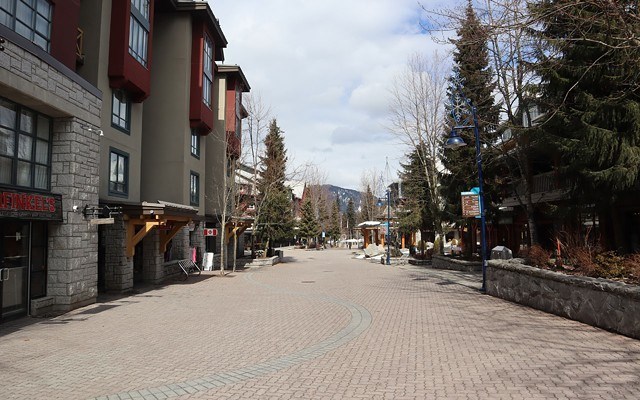I can't help but try to analyze what I see as a big disconnect going on between the Government of Canada, the provincial government and the real estate market in Canada.
We have been asked, not told, by both levels of governments to close our retail stores, restaurants, coffee shops, spas, hair salons and all other non-essential services in order to help curb the spread of COVID-19.
If the government had ordered us to close, that would probably have forced the insurance companies to actually pay out the business-interruption insurance policies that we all carry. Instead, government decided to ask that we all work together and in doing so relieved the insurance companies from paying out because there was no "damage" to our business. A virus isn't considered damage.
Our commercial landlords, for the most part, have either requested full payment each month or offered to defer part of our monthly rental costs and start paying that balance back at a later date. The excuse most landlords are using is that they have mortgage payments to make and seem to think that tenants should have ample funds to use up in the case of business interruption.
Shouldn't the landlords also have ample funds to cover an emergency? Since closing my store mid-March, I have taken in zero dollars, and by the end of April, I should be able to make an income of zero dollars again. Where is the shared responsibility in that scenario?
Now to my point: In B.C., the provincial government announced plans to help residential tenants by paying up to $500 per month paid directly to the landlord. I suspect it's being paid directly to the landlord so as not to alarm lenders. If lenders start getting nervous, then it becomes a house of cards ready to fall down in even a mild wind. How many residences in Canada have mortgages? Many, I suspect. That measure will temporarily keep the housing market from coming down too far, too quickly.
So far, the Government of B.C. hasn't announced any measures to assist either the commercial landlord or tenant. Is it part of the NDP platform to ignore the many calls to help businesses survive during a crisis? Does it now fall on the federal government to mandate some sort of relief for businesses?
By the way, a $40,000 loan is just piling on debt. It's not relief. Not paying a BC Hydro bill is not going to save a business. Deferring health tax is not going to save a business. Allowing PST filing and payments to be deferred until September is not going to save a business if it can't open. Essentially deferring payments won't save businesses.
So I ask you, government leaders, why is there this disconnect?
If something significant isn't done immediately for commercial landlords and their tenants, not only will the weak not survive, but it will also take a significant toll on the strong.
Not knowing when businesses will be allowed to open again is hard because as we've been told, this virus will keep us closed for at least another two months, if not longer.
We are always being told how important Whistler is to B.C. tax coffers. Even if you take the long view, it's hard to imagine that it's beneficial to allow a huge vacancy rate to occur in Whistler by not offering a solution to the current tenants.
Keep us in place, and magically, tax dollars will flow again once we are allowed to open. If you don't, then it won't be business as usual for a long, long time.
Peter Elzinga // The Beach Whistler<
/p>



